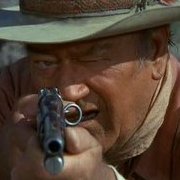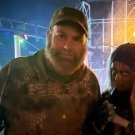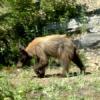I got sent this earlier in the week, what these Orangs are doing shouldn't come as any surprise to anyone.
In the Olympic Project Nest Area, it's full all around with Evergreen/Wintergreen Huckleberry (Vaccinium Ovatum) which has various medicinal purposes, one being helping to facilitate strength after childbirth. Every one of the 20+ nests were made with this plant, with leaves found piled up next to specific nests, which had been stripped.
I found some older correspondence regarding my thoughts on this kind of thing if anyone's interested, and i'll c&p it below.
----
Firstly, each and every nest is 'made' from Evergreen Huckleberry (Vaccinium Ovatum).
Secondly regarding the Western Swordfern that is mentioned below. Bear in mind that when the guys walked in on the one making the nest back in Feb 2020 (just shout if you're not aware of that and i'll send the podcast/interview link) , a week later when back in the nest area, they found lots of leaves perfectly stripped from this Fern. It'll make more sense when reading further on so revert back to this for clarification when needed.
Lastly, bear in mind that each and every nest both from 2016 and the recent 2020 nest, were all constructed/being constructed in the month of February.
The Evergreen Huckleberry range makes up 21% of all Olympic and Kitsap Peninsula's land mass as per USGS.
Broken down, we see the below.
Spring - 40% of reports are from within or within 5 miles of the EH range (a 95% increase v the 21% of land mass).
Summer - 55% of reports are from within or within 5 miles of the EH range (a 162% increase v the 21% of land mass).
Fall - 53% of reports are from within or within 5 miles of the EH range (a 152% increase v the 21% of land mass)
Winter - 59% of reports are from within or within 5 miles of the EH range (a 181% increase v the 21% of land mass)
These numbers in my opinion are astonishingly high and i do not believe that it should be viewed as coincidence that winter leads the way with this data.
----
Evergreen Huck (Vaccinium Ovatum) which is the species of Huck at the nest site.
There are 26 species of Huckleberry in North America with 3 that can be used as a 'birthing aid'. The Evergreen Huckleberry (Vaccinium Ovatum) is one of them as is the Oval-leaf Huckleberry (Vaccinium Ovalifolium, has a range in the Olympics but not the Kitsap Peninsula as per various sources and is generally found at higher elevations) and the Bog Bilberry (Vaccinium Uliginosum).
Evergreen Huckleberry - The leaves are antiseptic, astringent, carminative and hypoglycaemic. An infusion of the leaves and sugar have been given to a mother after childbirth to help her regain her strength. A decoction of the leaves has been used in the treatment of diabetes.
---
The Western Sword Fern, the fern that is the more common fern on the Kitsap Peninsula (geographically/technically separate from the Olympic Peninsula but combined within, within my numbers), and is at the nest site as per various pictures that have been matched up by three different, separate plant/flora ID tools and various flora/fauna experts at the site itself.
There are around 40 different species of Fern in the PNW alone with only 2 that can be used as a 'birthing aid'. The Western Sword Fern is one of them.
Western Swordfern - An infusion of the fronds has been used as a wash or poultice to treat boils and sores. The young shoots have been chewed and eaten as a treatment for cancer of the womb and to treat sore throats and tonsillitis. The leaves have been chewed by women to facilitate childbirth. The sporangia have been crushed and applied as a poultice to burns, sores and boils. A decoction of the rhizomes has been used in the treatment of dandruff.
This is the Fern (again, confirmed within the three different plant ID apps) that the Guys found a few months back at the old nest site that had the leaves plucked/stripped off of the branches.
---
As you'll notice from the above, both plants could potentially be used in a 'before (WSF) and after (EH)' type scenario if the nest areas are in fact used for the birthing process.
It should also be noted where the Evergreen Huckleberry is also known as the 'Winter Huckleberry' among other things because they are the last fruit to be gathered and the berry's themselves are said to be most tastiest after freezing. Think nest construction months (February) and other general activity in that area. Both leaves and berries themselves are also high in Vitamin C.
The fact that the specific species of both Huckleberry and Fern are what they are in the nest area is incredibly interesting to me, again, if in fact the nests are used a birthing area.
On a side note, i recently looked at Gorilla Nest structure studies which led me to look for Gorilla Nests that were not just regular every-day type nests, but were being used within the Gorilla birthing process that had young present in the images.
For these specific nests and using three separate plant/flora identification apps, i kept coming across a plant within the specific nests with young present called 'Guinean Henweed' which upon further research, yes, is a 'birthing aid' and i quote 'The roots are used as a remedy for toothache, and it has also been used to procure and abortion. A leaf maceration is applied to the belly to induce contractions in case of a difficult delivery.' end quote.
I find it quite cool that a fully discovered and recorded Primate in Benin, West Africa, uses flora which can be used as a 'birthing aid' whilst 8,000 miles away in the Pacific Northwest of the United States of America, another albeit undiscovered Primate is potentially doing the exact same thing with the exact same type of localized flora that gives it the same advantages within a birthing area scenario..;)



